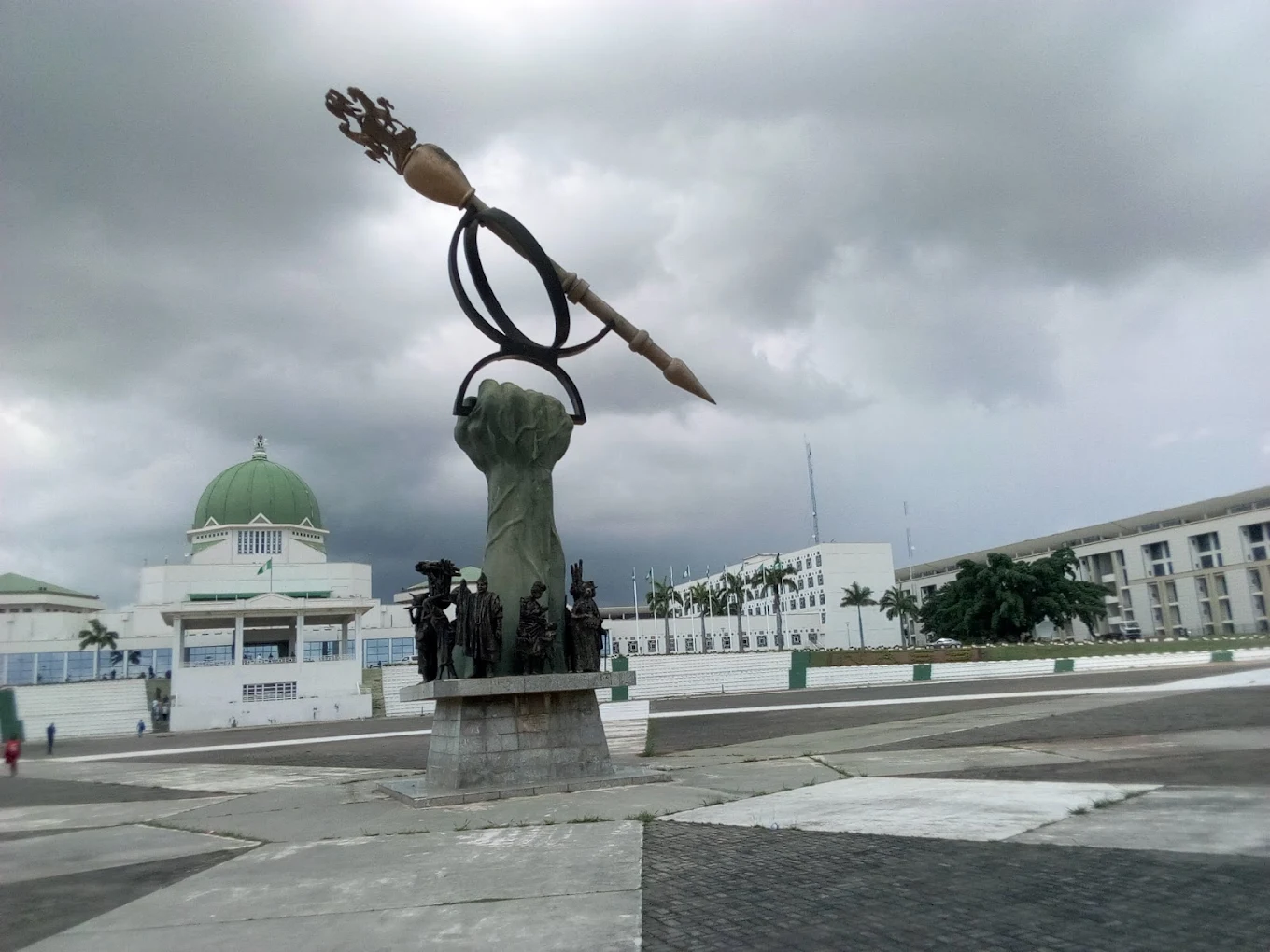Four months after 9,022 farm equipment, comprising tractors, disc ploughs and harrows, ridge-makers, tractor-trailers,seed drills, boom sprayers and harvesters, imported by the Federal Government from Belarus were commissioned, the consignments have been detained at the National Agricultural Seed Council (NASC) headquarters, according to reports last week.
The items, estimated to cost well above N50 billionare gathering dust, as the Federal Ministry of Agriculture and Food Security (FMAFS), awaits a presidential directive on what to do with the items.
Meanwhile, the 2025 farming season is expiring as the rains ease off. Because opportunities for dry season farming are not common, that may add another six months before the tractors are put to use, which could be around March-April 2026. We pray that the Presidency overcomes the bureaucratic bottle-necks that make deployment of the tractors such a big deal, compounding hunger in the land and raising accountability issues with agric expenditures.
On the occasion of commissioning the tractors, recall that President Bola Tinubu announced the importation was to kick-start the administration’s Renewed Hope Agricultural Mechanisation Programme. It took place at the NASC office at Sheda, along the Abuja-Lokoja Expressway, with fanfare and as usual, grandiose promises.
The President said he was going to make Nigeria a global agricultural power-house, one that will supply international markets, after making sure that every citizen has accessed affordable and nutritious food. It was a sumptuous event and Nigerians where hopeful that in months, this dream would happen.
This column in a piece on June 30, 2025, titled: “Now that Belarus tractors are here”, shared in that optimism, but reminded Mr President that his earlier pronouncements on agriculture were yet to materialise; that it would make sense to investigate why the huge sums he awarded the sector do not put food on the tables. It was a way of asking whether some bureaucrats were not putting clogs in the wheel of Mr. President’s lofty dreams for the country.
On August 1, 2023, when it became clear that citizens were impoverished by government’s high-handed economic reforms, President Tinubu was compelled to make a national address, where he rolled out palliatives to lessen the burden on the people.
He said: “Things seem anxious and uncertain. I understand the hardship you face. I wish there were other ways. But there is not. If there were, I would have taken that route as I came here not to hurt the people and the nation I love.” To demonstrate love, the President announced 200, 000 metric tons of grains from the Strategic Reserve to be sold to households at moderate prices.
To boost farming, the government promised to disburse 255,000 metric tons of fertiliser and other inputs to farmers who are committed to supporting the administration’s food security agenda. There was to be disbursed, N50 billion each to cultivate 150,000 hectares of rice and maize, cassava and wheat farms.
There was joy in the land, but by December 2023, food inflation had reached 33.93 per cent, up from 29.34 in August. More palliatives were announced and bags of rice and other items were shared. The implication was that the promised intervention did not reflect in the market.
One is not aware that government instituted a probe to uncover why the massive investments failed. Did the money not get to the right quarters to facilitate the cultivation of thousand hectares of rice, cassava, wheat and maize? Is it likely that what Mr President announced were non-binding promissory notes, like campaign promises that are of no effect? Or, was somebody sabotaging the efforts of government, since the money had been appropriated by the National Assembly?
By August of 2024, there were hunger strikes and protests to end bad governance across the country, despite government boasting it had invested N9.74 billion to procure and distribute food to hungry citizens. Government responded with more palliatives: duty-free importation of maize, husked-brown rice, beans, wheat and cowpeas, for 180 days.
Despite these seemingly humanitarian efforts, food inflation was 39.84 per cent by December 2024. In response, the Federal Government doled out hefty sums to members of the National Assembly to make food available to their constituents: two trucks of food items for each member of the House of Representatives and four trucks for senators. Some delivered, others didn’t, since they got cash and it was their prerogative to decide what amounted to a truck.
In 2025, the food situation has appeared a bitmanageable, perhaps, due to massive importation. According to data, the country’s food importation bill has surged substantially, due to the impact of the 180-day duty-free waiver. Food importation increased by 33 per cent to N1.18 trillion in the second quarter of the year, compared to the same period in 2024. That yields an annual import bill of over $10 billion per year; not good for a country that wants to be food secure.
Respite is noticeable regardingretail food prices, not because of any mechanical boost in production. Since June, farmers have been harvesting. The rains appear to be fairly good this year. Crops have done well across the zones, despite threats of insecurity. A lot of Nigerians are now doing home-farming and professional groups have platforms to testify and share experiences. Many professionals harvest yams, plantain, vegetables from their backyards. There is growing awareness that citizens must get back to land so they don’t starve, especially those who do not receive government subsidies or palliatives.
Despite the little gains, reports out there say severe hunger persists in the land, with the Food and Agriculture Organisation (FAO), warning that 30.6 million Nigerians in certain regions live with acute food insecurity, as at June-August lean season. Latest Global Hunger Index (GHI), ranks Nigeria among countries with the highest percentage of hungry and poor people. Out of 125 countries, Nigeria is ranked 115th, with a score of 32.8, indicating exposure to severe malnourishment and undernourishment, with fatalities among children.
Giving these realities, it was disheartening to hear that the tractors imported by government to produce more food are lying idle and the Agriculture Ministry has no clue what to do because the Presidency was yet to decide the sharing formula or mode of deployment. Should they be sold directly to farmers or leased at affordable costs to farming communities? How many smallholder farmers can afford a tractor? Will the tractors not end up being auctioned to portfolio farmers in government?
The reasons suggested for the delay don’t make sense, given the precarious situation the country is in regarding exposure to hunger. So, what was the motivation for the importation? In the previous article earlier referenced, one was hard finding justification for the Presidency directly importing tractors from Belarus or anywhere, using an agent/businessman, Alex Sigman, whom the President announced as his former classmate at the University of Chicago.
On that occasion, Tinubu said: “Alex was my very good neighbour and schoolmate in Chicago. Never did we dream that I would become President of the Federal Republic of Nigeria and Alex, a successful businessman from Belarus- working together to promote the prosperity of our two countries. I believe our university will be very proud that we are doing this here today.”
So, why has the Presidency allowed the dream of agric mechanisation to stall if it is indeed a dream come true? It is a notorious fact that the Nigerian bureaucracy is one hell of a system that kills great dreams. Is it possible that some interests in the Presidency are responsible for slowing the realisation of the dream for personal gains? If it were not so, why should the Minister of Agriculture, Abubakar Kyari, remain clueless regarding how the tractors arrived the country and how to put them to use. Let the President show more interest in agriculture, beyond the endless allocation of resources that don’t move the needle.
Another query, why is it that the Federal Government that has no farmland now competes with states to import tractors? Even though the initiative emanated from the Presidency, as part of the Renewed Hope Agenda document, states that now have more money should be encouraged to invest in tractors. We are yet to see one state that has massive capacity for food production, whose products affect retail prices in local markets.
The Middle Belt (Noth-central) that is noted for farming is now bedeviled by insecurity. Where farmlands are safe, not much has happened beyond signing MoUs with Chinese companies. The end product does not reflect on their Internally Generated Revenues (IGRs); they still depend on Abuja for survival. One state in the North-central produces paddy rice for a milling company, but the final product is as costly as imported rice. It means the government efforts have no impact on citizens.
So, it is time the Federal Government sensitises states to invest more in agriculture, instead of taking their excess FAAC allocations to purchase properties abroad.This column has it on good authority that lawmakers, governors and local government administrators now compete to invest in hotels and property in the UAE, South Africa, China and elsewhere.
Maybe the Presidency is not aware, or has opted to pamper the ruling class because he considers them to be the stepping stone for his re-election in 2027. But it makes nonsense of Mr President’s campaign for FDIs, while politicians invest secretly in other climes. Meanwhile, there is hunger and anger at home. Let the EFCC and ICPC investigate this.
The Federal Government in September, promised a speedy disbursement of N250 billion loan to smallholder farmers at a single-digit interest rate. Let this not be another hollow promise on paper. A close monitoring of the Presidential Food Systems Coordinating Unit is important, so the disbursement does not end up like the Anchor Borrower’s Programme of the previous government.
Let it not also end up as the TraderMoni and other Social Investment Programmes (SIPs) that were targeted at party members on the eve of elections. We must avoid waste and parochialism.
Let Mr President be reminded that government’s expenditures on agriculture are well documented. Henceforth, citizens want to reap the dividends, not promises.






